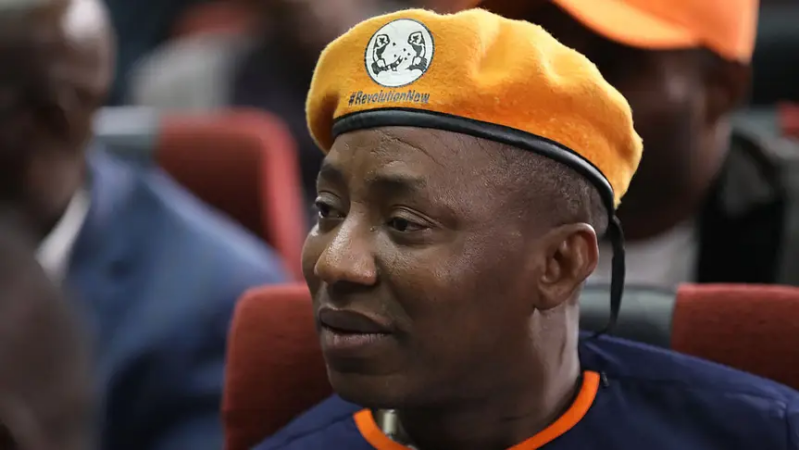
Reported by: Ime Richard Aondofa | Edited by: Gabriel Osa
Prominent activist and political figure, Omoyele Sowore, has drawn attention to what he described as some of the most horrifying mass killings in Nigeria’s modern history, pointing out that many were carried out by state forces yet have never been officially recognized as genocide.
In a statement released on his Facebook page, Sowore referenced the 1999 Odi massacre in Bayelsa State, where a predominantly Christian community was reportedly destroyed under the orders of then-President Olusegun Obasanjo. According to Sowore, entire families were killed, and homes were razed under the pretext of countering militant activities.
Sowore also highlighted the 2001 Zaki Biam massacre in Benue State, where soldiers allegedly launched attacks on Tiv communities during Obasanjo’s administration, resulting in hundreds of deaths. He emphasized that these incidents reflect a pattern of state-led violence targeting civilian populations.
Moving forward to 2015, Sowore recalled the Zaria massacre in Kaduna State, where the Nigerian Army, under directives from then-President Muhammadu Buhari, reportedly opened fire on members of the Islamic Movement of Nigeria (IMN), resulting in over 340 deaths, including women and children. Sowore noted that the United States did not officially classify the killings as genocide, citing geopolitical considerations, while some Nigerian Muslims viewed the incident without condemnation.
The activist further cited the #EndSARS protests, specifically the Lekki Toll Gate shooting in Lagos, where protesters were allegedly killed by military and police forces. Sowore’s statement underlined that the exact number of casualties remains disputed but described the event as a continuation of a troubling trend of excessive force used against civilians.
Sowore urged Nigerians and international observers to recognize these historical incidents, emphasizing the need for accountability, justice, and institutional reforms within Nigeria’s security apparatus. He called for comprehensive investigations and documentation to prevent the recurrence of such tragic events and to ensure protection for all citizens.
Analysts observing Sowore’s statement note that it adds renewed urgency to the national discourse on human rights, military conduct, and historical memory, highlighting the importance of acknowledging past atrocities as part of broader efforts toward justice and reconciliation in Nigeria.
📩 Stone Reporters News | 🌍 stonereportersnews.com | ✉️ info@stonereportersnews.com
📘 Facebook: Stone Reporters | 🐦 X (Twitter): @StoneReportNew


Add comment
Comments